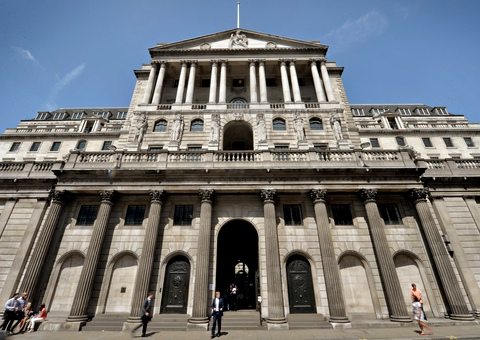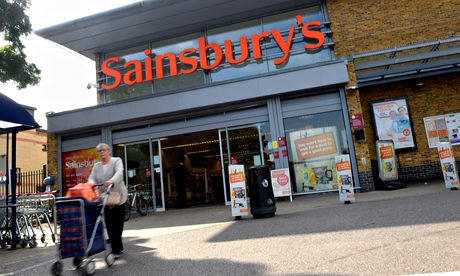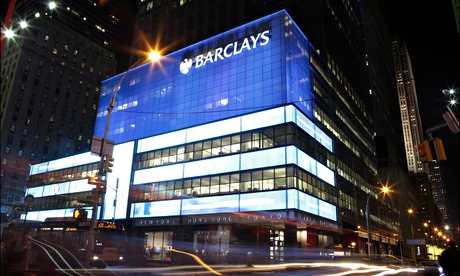Tales of Barclays bankers playing fast and loose, circa 2011, lack shock value these days. After Libor rigging, forex rigging, and four other serious disciplinary breaches by the bank since 2009, we’re numb. But the latest addition to the portfolio of naughtiness shouldn’t be missed. The Financial Conduct Authority, whacking the bank with a £72m penalty for failing to run checks on a group of “politically exposed persons” wishing to transfer £1.88bn in a hurry, tells a cracking tale.
See the bankers salivate as they eye the rewards that will come with this “elephant deal”. One manager wants to “race this through”. One thinks they could be on to “the deal of the century”. When the client demands strict confidentiality, on pain of £37.7m in compensation if names leak, the Barclays managers deem electronic record keeping to be too risky and buy a physical safe to store hard copies. “Few people in Barclays knew of the existence and location of the safe,” says the report.
None of those entertaining details directly worry the FCA. The regulatory breach lay in failing to check properly how the clients got their fortune in the first place. Barclays didn’t follow its own rules even though there were “a number of features of the business relationship that indicated a higher risk of financial crime”.
Some of the bank’s attempts at due diligence were almost comical. One explanation of the clients’ wealth said it came from “landholdings, real estate and business and commercial activities”. As the FCA notes drily, “this was wholly inadequate and virtually meaningless in the context of the due diligence that Barclays was required to undertake”. Overall, Barclays “failed to minimise the risk that it may be used to facilitate financial crime”.
The only feature missing from the FCA reports is names. We don’t know which Middle Eastern ruler (that is the City’s best guess: the Arab spring was happening at the time) was willing to pay Barclays £52.3m to transfer £1.88bn in a complex deal involving “multiple jurisdictions, offshore companies, a trust and several temporary bank accounts in different currency denominations”.
Nor, more importantly, do we know which individuals at Barclays were involved. The FCA, after a run-in with the courts, is obliged to remove job titles from its reports to prevent individuals being identified, or guessed at. Thus “senior management” is the stock phrase in this report. Nor is the FCA allowed to say whether it is investigating individuals with a view to imposing fines or bans from the City – but it would be astonishing if it isn’t.
Whiplash specialists get a bump
Buckle up, Slater & Gordon shareholders: George Osborne has driven his ministerial Jag into your rear end. Shares in the Australian legal outfit, big in whiplash claims over here, crashed 50% as the chancellor said he would reform “the compensation culture around minor motor accident injuries”.
Few hearts will bleed for the lawyers. As many have observed, Britons must have the weakest necks in Europe if all those claims for whiplash are genuine. Whiplash, in many instances, has become a racket in which too many outfits – claim management firms, repair garages and car rental firms, not just lawyers – have an interest.
Osborne’s preference for a system that obliges insurers to meet genuine medical bills, while still allowing severe claims to go to court, will be cheered by most drivers, provided the promised £40-£50 fall in the cost of an annual motor policy arrives promptly.
But before the industry celebrates, it should ask itself why the whiplash epidemic broke out. The main reason is that most insurers were idle and short-termist. They judged it cheaper to pay, say, a suspicious £2,000 claim than defend it at a cost of, say, £2,200. With greater determination, the industry could have helped itself.
An indirect reason is that insurers have their own devious habits. As everybody should know by now, it invariably pays to question your renewal quote. The first price is a try-on – it’s what the insurer hopes to get away with. Underhand pricing tactics and fraud are very different things, obviously. But if you treat your customers like fools …
Tesco keeps its powder dry
Still on ambulance-chasing matters, on Thursday Tesco agreed to settle for $12m a class action arising from last year’s overstatement of profits. The action was brought on behalf of holders of Tesco’s American depositary receipts, the US equivalent of the UK-listed shares, and was always deeply unpleasant. One set of Tesco shareholders was hoping to gain at another’s expense.
In an ideal world, Tesco would have fought the action and won. In practice, you can’t blame the company for ridding itself of a distraction. Let’s hope the relatively small size of the cheque deters those lawyers hoping to launch a similar action in the UK and Europe. Tesco’s overstatement of profits is best left to the Serious Fraud Office to probe.











